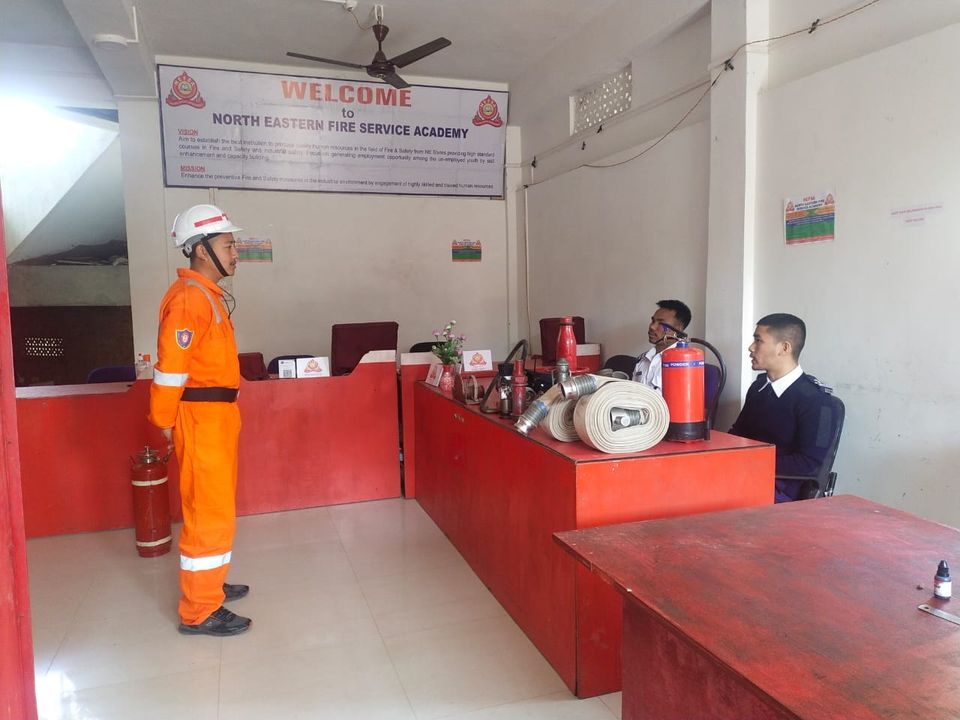Fire safety is an essential aspect of protecting lives and property. Whether at home, at work, or in public spaces, being prepared and knowledgeable can prevent fires and reduce their impact. NEFSA Fire Academy, a trusted name in fire safety training, shares key guidelines to help you stay safe and prepared.
1. Install Smoke Detectors
Smoke detectors are your first line of defense against fires. Ensure you have smoke detectors installed on every level of your home and in critical areas such as bedrooms and hallways. Test them monthly and replace the batteries at least once a year.
2. Create a Fire Escape Plan
Develop a fire escape plan that includes at least two exits from each room. Practice fire drills with your family or colleagues regularly to ensure everyone knows how to evacuate safely. Time is critical in a fire, so familiarity with the escape plan can save lives.
3. Keep Fire Extinguishers Handy
Place fire extinguishers in accessible areas, such as the kitchen, garage, and workshop. Learn how to use them effectively. The P.A.S.S. method (Pull, Aim, Squeeze, Sweep) is an easy way to remember the steps to operate a fire extinguisher.
4. Avoid Overloading Electrical Outlets
Overloading electrical outlets can lead to overheating and sparks, which are common causes of fires. Use surge protectors and avoid plugging too many devices into a single outlet. Regularly check electrical cords for damage and replace them as needed.
5. Practice Kitchen Safety
The kitchen is a high-risk area for fires. Never leave cooking unattended, and keep flammable items like dish towels and paper towels away from the stove. Have a fire-resistant lid nearby to smother small grease fires.
6. Store Flammable Materials Properly
Store flammable liquids such as gasoline, paint, and cleaning supplies in well-ventilated areas away from heat sources. Use approved containers to minimize the risk of accidental ignition.
7. Teach Children About Fire Safety
Educate children about the dangers of playing with matches, lighters, and candles. Teach them what to do in case of a fire, including how to stop, drop, and roll if their clothing catches fire.
8. Install Fire-Resistant Materials
When building or renovating, consider using fire-resistant materials such as metal roofing, treated wood, and fire-resistant insulation. These materials can slow down the spread of a fire, giving occupants more time to evacuate.
9. Stay Vigilant with Heating Equipment
Keep space heaters at least three feet away from flammable objects. Ensure your heating system is regularly maintained and that chimneys are cleaned annually to prevent creosote buildup, which can lead to chimney fires.
10. Be Prepared for Emergencies
Equip your home or workplace with an emergency kit that includes flashlights, first aid supplies, and a communication plan. Make sure everyone knows how to call emergency services and provide clear instructions.
Why Fire Safety Matters
Fire safety is not just about preventing property damage—it’s about saving lives. NEFSA Fire Academy emphasizes that preparation, education, and vigilance are critical components of fire safety. By implementing these guidelines, you can significantly reduce the risk of fires and ensure the safety of your loved ones and colleagues.
Learn More with NEFSA Fire Academy
NEFSA Fire Academy offers comprehensive fire safety training programs for individuals, families, and businesses. From hands-on fire extinguisher training to advanced fire prevention techniques, our experts are here to equip you with the knowledge and skills you need to stay safe.
Contact Details
📞 Phone: 9435904101 | 9435912101
📧 Email: nefsaindia@gmail.com
🌐 Website: https://nefsaindia.com/
For more Blog : Click Here
Join Us :- Click here







